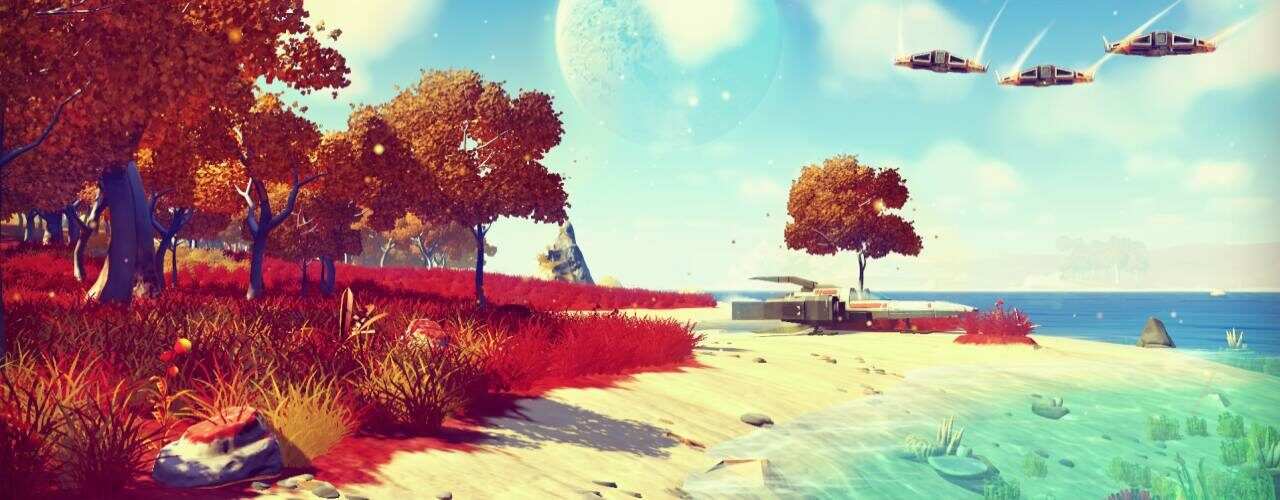Excitement is building about the upcoming computer game No Man’s Sky, which promises to allow players to explore a near infinite galaxy containing 18 quintillion unique planets. While there is a general game play goal (to get to the centre of the virtual galaxy and uncover a mystery), it isn’t compulsory, and the game’s architect Sean Murray anticipates that many players will prefer to sidestep it and immerse themselves in the wonder of open-ended adventure and discovery instead.

The game has been designed to facilitate this, and as the game universe is not only vast but also richly detailed with alien landscapes and life-forms, there is plenty to explore and interact with, most of it unknown even to the game’s creators as complex algorithms are used to generate much of it. Planets are said to be planet-sized, and the first visitors to each will have the privilege of naming them, in a nod to the Elizabethan age of exploration.
Signal spotted by Joy Green
Image credit: Hello Games










